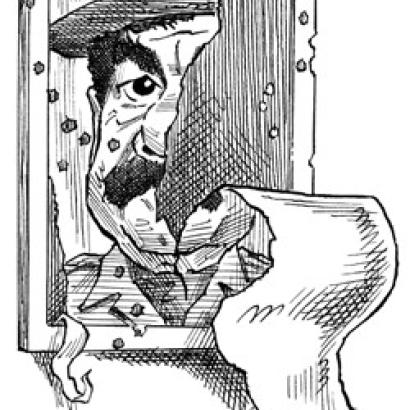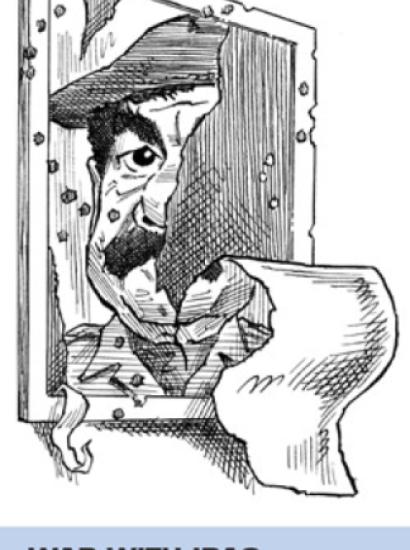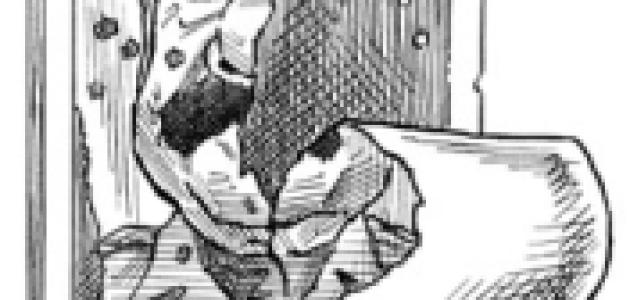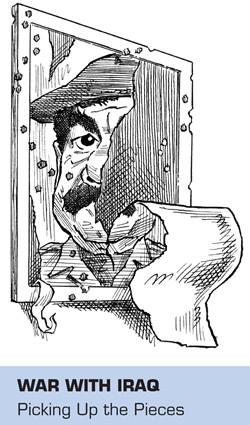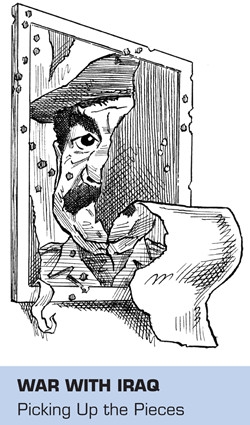
The moment when a new regime consolidates is rarely so clear, however. And only sometimes does the fall of autocracy produce democracy; as often as not, it produces a new form of dictatorship. The exit of European rulers in Africa punctuated the end of foreign autocratic rule but did not usher in a new era of democratic rule. Instead, most of the fragile regimes put in place after colonization—oftentimes with constitutions scripted by departing Europeans—also failed, allowing military dictators to come to power. One form of dictatorship replaced another. Regime change in Europe also has rarely produced democracy on the first try. The French moderates who first ruled after the fall of the ancien régime in 1789 eventually gave way to radical, authoritarian Jacobins, whose demise in turn produced Napoleon. In Russia, the provisional government, which took power after the ouster of the tsar in the February Revolution (in 1917), aimed to establish a constitutional democracy. Only a few months later, however, Russia’s first attempt at democratic regime change failed when the Bolsheviks seized power in what they called the October Revolution. World War I helped precipitate regime change in Germany and the emergence of the Weimar Republic; but this political system also faltered, and another strain of autocratic revolutionaries, Hitler and the Nazis, seized power.
The collapse of dictators more recently has led more often than not to democracy eventually. But even in the more favorable context of the current international system—a system dominated by the democratic hegemon, the United States—the path from dictatorship to democracy in countries undergoing regime change is rarely fast, easy, or inevitable. Western commentators and analysts frequently use the collapse of communism as the metaphor for framing the next wave of democratic expansion in the greater Middle East. Yet, in the post-communist world, the collapse of dictatorship has only sometimes led to the consolidation of a democratic regime. In several successful cases of democratic transition in the region, such as Poland, Hungary, the Czech Republic, and the Baltic states, the path from old to new has been abrupt and peaceful. In others, such as states emerging from the collapsed communist regime in Yugoslavia, the path from dictatorship to democracy has been halting, violent, and still uncertain more than a decade later. Regime change in Russia began in a euphoric moment in August 1991, when, as a few weeks ago in Iraq, it became obvious that the old order had collapsed. Twelve years later, Russian democracy is still struggling to take root.
The brief tour of regime change in modern world history should not produce pessimism about the prospects for democracy in Iraq. Instead, these cases should serve as reminders of how difficult the task is of democratic emergence, even in the best of circumstances, which Iraq most certainly does not enjoy. These other cases can also serve as guides to American regime makers and their Iraqi allies regarding what works and what does not when trying to navigate the treacherous path from autocratic collapse to democratic rule.
The collapse of the old order always leaves a vacuum of state power, especially in the destructive wake of totalitarian regimes. The anarchy, looting, and interruption of state services in Iraq that we read about and see on television today are bitterly familiar to any student of democratization or revolution. That absence of authority fuels demands for order, any order. When the first post-conflict governments cannot provide order—in part because the state they inherit after regime change lacks resources and authority—people turn to radicals promising a better future. If the radicals fail, they turn to the colonels.
The Iraqi people are already experiencing the horror of state collapse and, unmet expectations. They might soon be willing to listen to new ideologues promising a third path between Saddam Hussein’s regime and that government (or lack thereof) provided by the American occupying forces and their allies. In Iraq’s neighborhood, the revolutionary ideologues preach an extreme version of Islamic fundamentalism.
Are these kinds of revolutionaries in Iraq now? Are their supporters financing their safe arrival in Iraq? (The Germans provided Lenin with a sealed train car to get back into Russia. Khomeini arrived on an Air France Boeing 747 to steal Iran’s revolution away from more moderate forces.) Iraq’s long borders with Saudi Arabia, Iran, and Syria offer easy access. Like national fronts that opposed dictatorships in other cases of regime change, the coalition of anti-Saddam forces most certainly contains groups with radical ideologies. Will they rise to the top, be marginalized, or moderate their views just long enough to assume partial power? For students of comparative revolution, Abd al-Aziz al-Hakin, one of the leaders of the Supreme Council for Islamic Revolution, looks like a Lenin or Khomeini in waiting. The murder of Sheik Abdel Majid al-Koei in Najaf suggests that the battle for control of the mosques has already been joined. Most analysts of post-war problems in Iraq have focused on the potential for ethnic conflict, yet the ideological threat has the potential to transcend ethnic and even Sunni-Shiite divides.
After a period of moderate rule after the collapse of the old dictatorship, radicals frequently prevail. The Jacobins in the French Revolution, Lenin in the Russian Revolution, Mao in China, Khomeini in Iran, and the Taliban in Afghanistan all came to power after more-moderate provisional governments, which came to power immediately after regime collapse, failed.
But these anti-democratic radicals do not always win. Iraq starts with some anti-extremist antidotes. Most important, Iraqi radicals cannot court the guys with the guns because those with the biggest and most guns are Americans. It also helps that the first two models for Islamic republics—Afghanistan and Iran—have been discredited. Third, even among the Shias in the south, extremist followers of Islamic fundamentalism have not traditionally enjoyed support.
This said, the balance of forces among ethnic, religious, and political groups changes much more quickly and unexpectedly in revolutionary situations such as that in Iraq today. To date, the Americans in charge of fostering democracy inside Iraq do not seem to realize how quickly time moves during regime change.
The effort to build a new democratic regime in Iraq got off to a terrible start. As U.S. Institute of Peace scholar and post-war reconstruction expert Ray Jennings has written, “successful post-conflict reconstruction does not begin ‘the day after.’ It begins ‘the day before.’” It did not in Iraq. If Pentagon planners had the foresight to protect the oil fields as part of the effort to revitalize the Iraqi economy, they should have realized how crucial it would have been for democratic development to protect hospitals as well as the Iraqi national museum, library, and archives. If the American war plan to destroy Hussein’s regime alienates the museum director, scholars, doctors, and nurses, who else in Iraq will build new democratically oriented organizations of civil society?
To make up for this bad start, American officials in Iraq must move immediately to restore some semblance of executive authority. For the foreseeable future, executive power can only come from the American armed forces. Although the judicial branch and legislative branch of governments in a new Iraqi regime must be placed in the hands of Iraqis as quickly as possible, the executive branch must remain under control of the “guys with the guns” until Iraqi administrative capacity develops. Who else can stop the looting of essential facilities (looting a Saddam palace is no great crime; looting a hospital is a crime against humanity)? Who else can provide security to aid workers and the Iraqi people? If the Americans fail to provide executive power, the experience from other regime changes suggests that others with more radical ideas will fill the void.
Establishing executive authority does not mean establishing martial law. Instead, the United States and its allies must allow liberalization of civil society, without rushing to elections or the transfer of executive power to Iraqi officials. In cases of failed democratic transitions, premature elections destabilized already fragile political orders and offered radicals access to the state, which they in turn used to destroy democratic practices. Before elections take place, a free society needs to organize.
All actors and institutions of liberal democracy must be allowed to form: civic groups, independent media, trade unions, and eventually even political parties. As this process evolves, U.S. officials in Iraq must vigorously engage Iraqi civil society. Many Westerners assume that Saddam’s totalitarian regime has destroyed Iraqi civil society, leaving a tabula rasa on which to build new organizations. The same mistake was made after the collapse of Soviet communism. In fact, all kinds of religious groups, kinship ties, and economic networks exist in Iraq today. Some of these groups may be liberal and Western in orientation, but some most certainly are anti-liberal and anti-Western, inspired more by Osama bin Laden than Thomas Jefferson. Interim authorities in Iraq must quickly understand the terrain of Iraqi society and then seek to engage and support those elements committed to a liberal regime. The battle for the loyalty and orientation of these social groups constitutes the frontline between democracy and Islamic revolution in Iraq today.
Eventually, after the liberalization of society has developed, the least destabilizing sequence of elections in most (although not all) successful democratic transitions is local elections first, national elections second. In ethnically divided societies such as Iraq, this sequence can sometimes pull states apart. The presence of the American occupying forces, however, should prevent state dissolution in Iraq. Local elections allow leaders with grassroots support to emerge, who in turn can shape the formation of a national government.
In the beginning, elections should occur only for legislative bodies, leaving the executive branch as the last part of the new regime to be chosen by popular vote. This sequence gives society a chance to vent through the electoral process and Iraqi politicians the opportunity to gain experience in democratic politics, without immediately handing over the ultimate responsibility (or ultimate power) to untested leaders.
Negotiated transitions between the old rulers and the new democratic challengers produce successful and enduring democratic regimes. Iraq, obviously, cannot follow this path now. But a deliberative process between those vying to replace the old regime can still produce enduring democratic rules and institutions. To stimulate this kind of learning about democracy, elected legislatures with little executive authority should focus first and foremost on organizing a prolonged process for writing a new constitution. The process of penning this crucial document can be as important for fostering democratic culture as the document itself. Only in rare circumstances (for example, Japan in 1945) do facsimiles of constitutions from other countries handed over by American generals actually work.
Democracy takes time to grow, especially in country such as Iraq with no previous history of democratic rule. To promote democracy in Iraq, therefore, Bush administration officials and their allies must stop talking about departure timetables. Of course, the sooner the American troops leave the better. At the same time, these discussions about an exit strategy will undermine those in Iraq who are committed to democracy. Those longing to restore dictatorship or seeking to foment an Islamic revolution are more organized today than those civic groups seeking to build a new democratic order. These democratic groups will need time and security to develop. U.S. officials should commit to being involved until the objective—that is, the consolidation of a stable, democratic regime in Iraq—is complete. This could occur in two years, as some officials have hinted, but it is more likely to occur after two decades, if the histories of regime change in other countries are any guide.








